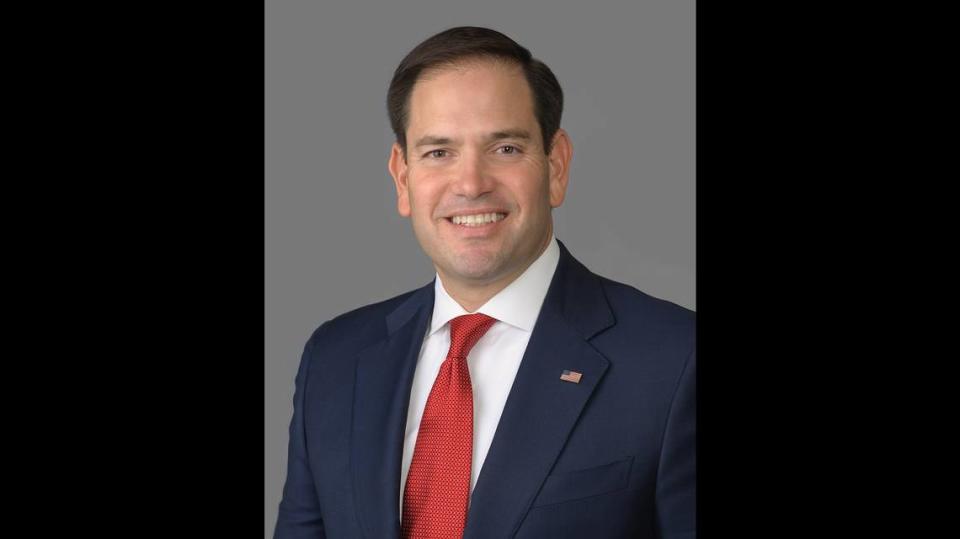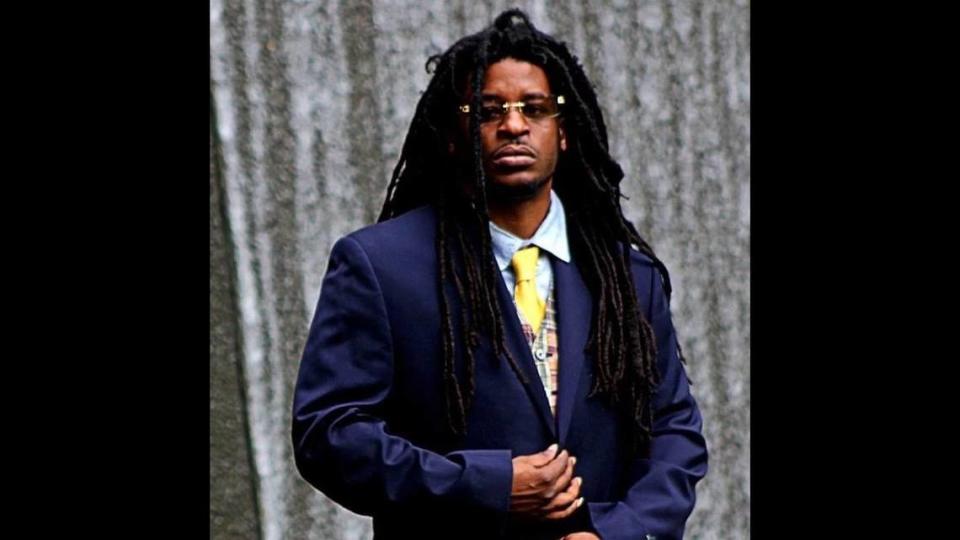Applicants with troubled pasts can’t qualify for PPP loans. Rubio hopes to change that.
The Treasury Department is working with lawmakers — including Florida Sen. Marco Rubio — toward a compromise on changing a heavily criticized rule that excludes small business owners with any sort of criminal record from applying for certain loans from the Small Business Administration.
On Mar. 27, 2020, President Donald Trump signed the bipartisan CARES Act, authorizing the SBA to implement the Payroll Protection Program — a loan program intended to help small businesses and incentivize them to keep their workforce on the payroll during the COVID-19 crisis.
There is no mention of felony convictions in the CARES Act itself but an interim SBA PPP rule excludes businesses if more than a fifth of its ownership group is in jail, on parole, under indictment or due to be arraigned, has not contested a felony charge or has been convicted of a felony in the past five years.
Sen. Rob Portman, R-Ohio, and the ranking Democrat on the Senate Small Business Committee, Sen. Ben Cardin (D-Maryland), wrote a joint letter to Treasury Secretary Steve Mnuchin on April 30 urging him to revise the SBA rules to support “second chances.”

“This relief was not intended to exclude business owners who have made mistakes, paid their debt, and turned their lives around,” they wrote.
On April 20, a group of conservative organizations wrote to Secretary Mnuchin, Senate Majority Leader Mitch McConnell and House Speaker Nancy Pelosi asking for the restrictions to be eased. That same day, a coalition of evangelical and Christian organizations also wrote to Rubio, the Florida Republican who chairs the Senate Small Business Committee, asking him to address the issue.
Sen. Rubio supports changing these rules and he is currently working with Sen. Cardin to address this in a bipartisan fashion, Rubio’s office said in a statement to the Miami Herald.
Responding to requests for comment from Miami Herald/McClatchy, a Treasury Department official said that Secretary Mnuchin “is engaging with members of Congress on a bipartisan basis on this issue.”

It is harder for people with felony convictions to get jobs. A 2006 study published in the Journal of Law and Economics found that having a criminal record reduced by 50 percent the chances of getting a job offer or a callback. Many of them set up their own small enterprises.
St. Petersburg native Jabaar Edmond, who runs a small film production company and employs three other people, said that he had started filling out an application for a PPP loan but questions about past charges and convictions stopped him in his tracks.
He had several past runs-in with the law, mostly for drug possession and trafficking, during his younger years — a period in which he said he was going through several “ups and downs” in life. He started his own company because, as a returning citizen, it was difficult to find work.
“None of that has anything to do with me now or my businesses,” said Edmond about his criminal record.
“It’s a slap in the face for funding to come down during a pandemic and then we’re excluded.”
No country for Ex-cons
It is unclear how many small businesses in the United States — where one in three working-age people have some sort of criminal record — are owned by people who have had prior convictions.
According to the latest SBA figures, 2.5 million firms employing 3.3 million people in Florida are small businesses. Florida Department of Law Enforcement’s records show that police departments made a total of around 19.5 million arrests on various forms of charges from 1998 to 2018.
According to the non-profit Sentencing Project, with roughly 87 percent of employers conducting background checks, more than 60 percent of formerly incarcerated individuals are unemployed a year after their release. Since incarceration rates are skewed towards minority communities, many of these individuals are people of color.
Even having a minor criminal record like a misdemeanor offense or an arrest with no conviction drives up chances of poverty, homelessness and bad credit, and can set up life-long barriers to successfully reentering society.
Earlier this month, trade publication Law360 reported on how leaked documents from the SBA say that anyone who has been arrested in the past 10 years, whether or not that led to a conviction, or anyone with a felony arrest, is ineligible for the separate Economic Injury Disaster Loan. The SBA did not confirm or deny the documents’ authenticity.
Some business owners did not even try applying after they got wind of the exclusionary rules.
Among them is Marquis McKenzie, who grew up in Orlando’s low-income housing projects and at the age of 15 wanted to be “the biggest drug-dealer” in Florida. He was arrested on an armed robbery charge and tried as an adult in 2006. He eventually got a seven-year sentence with four years on probation, later reduced to two.
After coming out of prison, he turned his life around. Today he is 29 and has his own cleaning company. He employs three people and sometimes hires more people part-time for bigger jobs.
He wanted to apply for an SBA loan but after he read about the exclusionary rules on social media, he did not go ahead.
McKenzie had initially wanted to be a nurse but opened his own firm after he realized his criminal record might become a barrier. He said the SBA rules are another obstacle for previously incarcerated individuals trying to reenter society.
“It was kind of devastating and I felt discriminated against,” he said.
Criminal justice and prison reform advocates have come down heavily against the rule.
COVID-19 Cases in Florida
David Fathi, director of the ACLU’s National Prison Project, called the rule “stunningly short-sighted” and “one more of the many punishments we heap on people who have paid their debt to society and are trying to rebuild their lives.”
“You may have already served your time, but the punishment never ends,” he said.
“Don’t we want formerly incarcerated people to be able to support themselves and their families? Why on earth would we penalize people who are trying to become self-supporting, tax-paying citizens?”
To shore up his filmmaking business for now, Jabaar Edmond has applied for some grant programs offered by his local community. But he is worried about the future if the effects of COVID-19 last for years and he is unable to apply for substantial loans from established agencies.
“We have so many battles in front of us as returning citizens that I don’t think the average person understands,” he said.
“It’s not that we’re asking you for sympathy or to feel sorry for us. We’re asking for the oppressive nature of the policies and practices to be taken off our names because we’re suffocating.”
McClatchy’s White House correspondent Michael Wilner contributed to this story.

